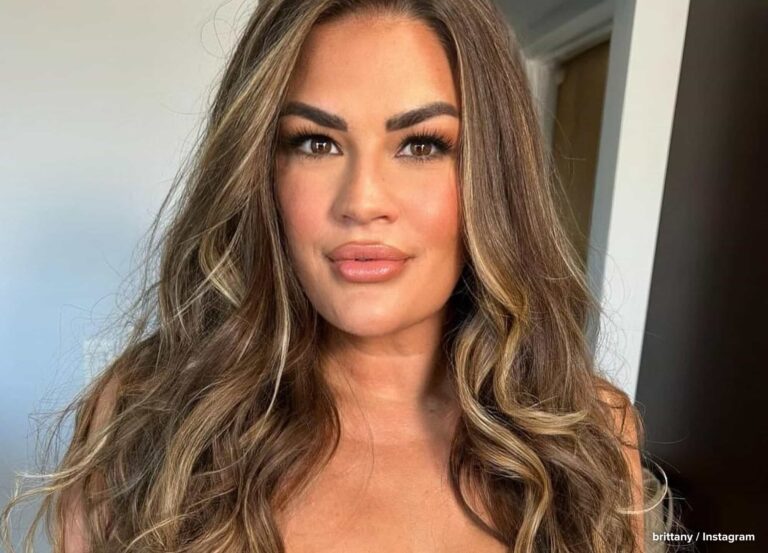Before you trust a Brazilian butt lift (BBL) surgeon with your body, health, and money, it’s crucial to thoroughly vet them and make sure they’re as qualified as they claim.
The best way to do that is to have consultations with at least three plastic surgeons (not just their nurses or patient coordinators) to compare their answers and approaches. Use this list of essential questions to get a complete picture of their qualifications, their experience, and what you can expect if you choose them to perform your plastic surgery.
Check qualifications
Are you board-certified in plastic surgery?
In the United States, surgeons certified by the American Board of Plastic Surgery (and the American Board of Facial Plastic and Reconstructive Surgery, for facial procedures) have undergone the most rigorous training, passed written and oral exams, and continued to adhere to a stringent code of medical ethics. You can look up their certifications on CheckYourSurgeon.com, which connects to the American Board of Medical Specialties, and check their profiles on their state’s Department of Health website to see if any disciplinary action has been taken against them.
“Always verify the specific type of board certification,” says Dr. Pat Pazmiño, a board-certified plastic surgeon in Miami. “Sometimes doctors will say that they are board-certified, but they don’t explain that they’re board-certified in gynecology,” for example.
You can also ask if your doctor is a member of The Aesthetic Society or the American Society of Plastic Surgeons, both of which set codes of ethics for their members and require continuing medical education. These plastic surgery societies share the most up-to-date safety data with their members and keep them abreast of task-force alerts and recommendations.
Do you follow the guidelines recommended by the Gluteal Fat Grafting Task Force?
A global Gluteal Fat Grafting Task Force evaluated the risks of Brazilian butt lifts and issued a practice advisory with technique recommendations in spring 2018. The key recommendation was that fat injections to the buttocks are safe if they’re delivered into the subcutaneous space just beneath the skin—never below the fascia and into the gluteal muscle.
Ask this question to ensure that the surgeon isn’t still practicing dangerous intramuscular injections. Injecting fat into the gluteal muscles can cause a fatal pulmonary embolism, which is when fat enters the bloodstream and blocks blood flow to the lungs.
Where will my surgery be performed?
Your surgery should be done in a hospital or an accredited outpatient surgery center that’s certified for patient safety by the Joint Commission, the American Association for the Accreditation of Ambulatory Surgery Facilities (AAAASF), the Accreditation Association for Ambulatory Health Care (AAAHC), and/or Medicare.
Do you have hospital privileges for this procedure?
Even if your surgery will be done in an outpatient surgery center, the surgeon should tell you in advance which hospital you’d be transferred to in an emergency, how far away it is, and whether they have the privileges to take care of you while you’re there.
Hospital privileges also mean that other doctors have verified their training and credentials. “If a hospital does not trust them to do the surgery, a patient should think twice about trusting that doctor,” says Dr. Pazmiño.
If your doctor is operating without hospital privileges and a complication arises, you could end up being sent to an emergency room, without immediate access to the most specialized care when you need it most.
How many BBLs do you perform each year? How many do you perform on an average day?
Choose a surgeon whose level of experience you feel comfortable with—and take notice if they avoid telling you the number of surgeries they do each day. While “there’s no magic number that’s going to automatically make this procedure safe, you’re looking for a surgeon who does it with some consistency,” says Dr. Constantino Mendieta, a board-certified plastic surgeon in Miami.
“You want it to be done with such consistency that it feels routine,” says Dr. Matthew Nykiel, a board-certified plastic surgeon in Newport Beach, California. You can ask a surgeon to explain in detail the procedure and recovery for you to gauge their experience and proficiency. “If they can lay out that information in a well-oiled-machine kind of way, that likely means they’ve done this a lot,” Dr. Nykiel adds.
However, beware of practices that focus on the sheer quantity of procedures performed. Because of the high risk of fat embolism during a BBL, it’s also essential that your doctor take their time with your procedure. Some RealSelf members have reported that the practice they’d chosen operated almost like an assembly line, which felt unsafe.
Look out for the following warning signs of an assembly line practice.
- Taking a deposit to hold a surgery date before scheduling a consultation
- A virtual consultation process that doesn’t include the surgeon—even if you’re traveling for surgery, your consultation should involve some direct communication with the surgeon, by video chat or phone call.
- Extremely discounted packages and fire-sale pricing on major surgery: this is a sign they are attempting to push high-volume, low-margin economics and schedule too many surgeries.
- Difficulty contacting the doctor’s office or having calls returned after a deposit is made
- The ability to swap dates with other patients: if you need to change your date, your doctor’s office should expect you to contact them about it so they can reschedule you. Letting patients just show up for a different time slot is not professional or safe.
- Having the provider’s office change the surgeon you are scheduled with, without asking you
Can I see before and after photos of your previous BBL patients?
Insist on seeing recent before and after photos or videos.
“Get a feel for their aesthetic and see if it correlates with your own,” says Dr. Mendieta. Pay special attention to patients who have similar features or builds as you so that you can get a sense of how your surgeon will tailor the procedure to your body type. Their office may even provide you with contact information for previous patients who had similar procedures and would be willing to answer your questions.
Understand the risks
What are the risks?
It’s imperative to weigh the benefits and the risks of any cosmetic procedure.
A 2017 survey of plastic surgeons found that BBL surgery had a death rate of 1 in 3,000 patients, making it the riskiest cosmetic surgery. The highest risk of death comes from pulmonary fat embolism, or PFE, which can occur when fat is injected below the fascia and into the muscle.
After the Gluteal Fat Grafting Task Force’s updated recommendations for surgical technique, including not injecting into the muscle, a new survey published in Aesthetic Surgery Journal in April of 2020 found that the mortality rate has improved to 1 in 14,952.
Of the physicians surveyed in the new poll, 94% were aware of the surgical guidelines issued by the task force, and only 0.8% reported that they were still injecting into the muscle, compared with 13.1% in 2017.
Still, Brazilian butt lifts have the highest incidence of post-op complications of any plastic surgical procedure. Common concerns include irregular contours, dents, lumps, rippling, or deep grooves in the skin that may necessitate a BBL revision surgery.
Related: How to Have a Safe Brazilian Butt Lift, According to Top Experts
What specific techniques would you recommend to achieve the look I want?
The doctor should engage you in a dialogue about which technique will give you the results you’re looking for. If one doctor is significantly more willing than others to go to extremes, this may be a red flag. If others tell you what you want is too risky, don’t dismiss their opinions. Your health is far more important than your appearance.
How often do you see complications for this procedure in your practice?
Every experienced doctor has dealt with some sort of complication. Some issues have nothing to do with the skill of the plastic surgeon—it’s just the way in which each individual body heals. Knowing how often your surgeon sees complications will help you confidently decide whether you’d like to follow through with the procedure.
Determine your candidacy
Am I a good candidate, physically and emotionally, for this procedure?
Your doctor should evaluate your emotional, physical, and mental health as part of your consultation. Be honest with your doctor in order to avoid serious complications down the line.
If you have an existing medical condition (like diabetes, high blood pressure, anemia, or cystic fibrosis), your doctor and their team should be fully aware and come up with a plan to address it. “If the surgeon just brushes it off and says, ‘I don’t think that’ll be a problem,’ that’s a red flag,” says Dr. Pazmiño.
Realistic expectations are also incredibly important with a BBL. While you may be tempted by the extreme results seen on social media, keep in mind that they often come with incredible risk. If you’re not willing to have more moderate results or are unwilling to undergo the time and expense of multiple fat transfer surgeries to achieve your desired look safely, you may not be an ideal candidate.
What will be expected of me before the procedure, to ensure the best results?
Your doctor should discuss the steps you need to take before and after surgery in order to ensure the best results. Can you stop smoking? Can you take the time off work that you need to recover? Are you currently at a healthy weight? If not, you may need to reconsider your surgery.
How much will my BBL cost?
Your price can vary widely, depending on the methods used; the experience level of the surgeon; their location; and additional surgical or operating room fees, anesthesia, or post-op appointments.
Ask for the all-in cost of the procedure for your situation—and keep in mind that you’ll probably get what you pay for. If one doctor’s rate is significantly lower than the average price cited on RealSelf, ask yourself what they might not be providing and choose safety over savings.
Learn the particulars of the procedure
Will you be performing my surgery?
It’s essential to confirm that the surgeon you consult will be the same one performing your surgery. At some practices, you may have a consultation with a board-certified surgeon, only to be passed off to another doctor with inadequate credentials and experience. Be especially wary of practices that allow you to consult with a “surgical coordinator” only via email, without giving you the opportunity to speak directly to the surgeon who will be performing your procedure.
Who will be assisting you during my procedure? What are their qualifications and levels of experience?
A good surgical team—including experienced registered nurses and surgical technicians—helps ensure your safety and outcome.
What sort of anesthesia can I expect during my procedure?
There are three main types of anesthesia used during most surgical procedures: general (you’re put to sleep); local (only the specific surgical site is numbed); and local with IV sedation or “twilight anesthesia” (your level of consciousness is altered). There are benefits and risks associated with each. Talk to your doctor about your options.
Will anesthesia be administered by a board-certified anesthesiologist or nurse?
Your anesthesia should always be administered by a board-certified anesthesiologist or certified registered nurse anesthetist. “They should be present for the duration of your procedure as well as during your recovery immediately after,” explains Toronto plastic surgeon Dr. Jerome Edelstein.
Prepare for recovery
Where will I recover immediately after my surgery? Will I receive continuous care by trained medical staff?
If you won’t be having your procedure in a hospital or will be traveling, your doctor may recommend a recovery facility. Some patients report being discharged to unlicensed facilities with little to no care, including inadequate food, water, and pain medication. Do your research on the options they recommend, and don’t be swayed by low prices at the expense of your health.
How long will my recovery be? Will I need help?
It’s important to know what to expect after surgery and how long your recovery period will last. You will probably need a caregiver to get you to and from your surgery and stay with you for 24 hours after your procedure. Your doctor will explain the postsurgical guidelines appropriate to your procedure and needs.
Who will be handling follow-up care and visits?
Recovery care can be just as crucial to your outcome as the surgery itself. If your surgeon won’t be directly providing care during your follow-up visits, you should be seen by a registered nurse who can immediately alert and involve the doctor if they have any concerns about how you’re healing.
What will happen if I’m not satisfied with my results?
Each surgeon has their own policy regarding revision surgery. Assuming adequate healing, many doctors will charge a reduced surgical fee for revisions, but anesthesia and facility costs will remain fixed.
Ideally, these details should be outlined prior to the original procedure. The best way to avoid having to undergo a revision is to make sure you have an honest relationship with a surgeon you trust and that the two of you are on the same page before entering the operating room.
Make sure your doctor has current malpractice insurance, since not all states require it to practice medicine. Should something go wrong during surgery, your course of action will be limited if your surgeon does not have coverage.











